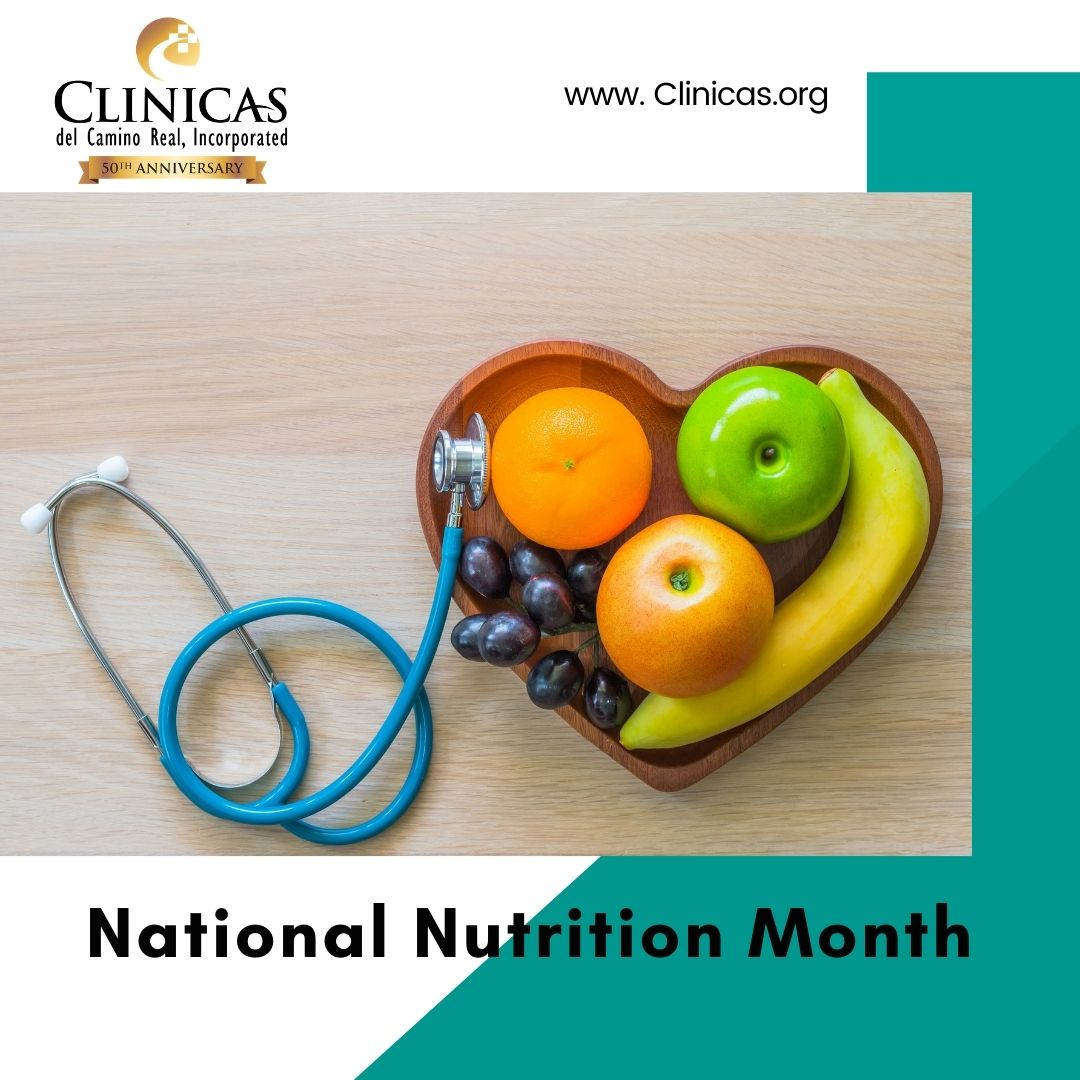
March is National Nutrition Month and a good time to think about eating right. There is some truth to the adage, “You are what you eat.” Food has a tremendous impact on your overall health and on how you feel every day. Eating the right food is a big step toward improving your health, but why is it so important?
What Does It Mean to Eat Healthy?
Healthy eating refers to consuming a variety of foods that provide essential nutrients, help maintain good health, and give you energy. When talking about diet, people sometimes focus on calories, but there is more to consider.
Low-calorie foods are not necessarily healthy. It is better to focus on the nutrients first to ensure you eat the right kinds of foods and then manage your portion sizes to control calories.
Your body needs five basic things in your diet:
- Protein
- Carbohydrates
- Healthy fats
- Vitamins and minerals
- Water
Why Does Eating Healthy Matter?
Your body relies on the nutrients in food to thrive. Protein, for example, provides amino acids, which are building blocks. Protein is essential to creating new cells, repairing old ones, and keeping the immune system working properly.
Carbohydrates get a bad rap in the diet circles, but they too are an essential nutrient. They provide quick energy and are important for a healthy digestive system.
Fats are also critical, but they can be tricky. There are three kinds of fats:
- Saturated (trans) fat — Found in meat and whole dairy products. Also in coconut and palm oil. Saturated fats are solid at room temperature. You want to avoid trans fat as much as possible. It can build up in arteries and put you at risk for heart disease.
- Monounsaturated fat — Mostly found in plant foods like vegetables, nuts, and grains. Monounsaturated fats are what dietitians refer to as healthy fats because they help keep triglyceride levels low in the blood. Triglycerides increase your risk of stroke or heart disease.
- Polyunsaturated fat — Like monounsaturated fats, these are found in plants and considered healthy. Polyunsaturated fat is a good source of omega-3 and omega-6 fatty acids, which are important for heart health.
Picking the right foods, getting plenty of exercises, sleep and water provide essential tools for good health.
Tips for Eating Better
March is National Nutrition Month, so what can you do to eat better? Here are some tips to get you started:
Make Fiber a Priority
Fiber is what keeps the colon cells healthy and the digestive tract clean. Fiber is key to lowering your risk for certain cancers and maintaining a healthy weight, too.
To add more fiber to your diet, make sure to eat plenty of fruits, vegetables, and whole-grain foods. Ideally, adult men under the age of 50 will consume 38 grams of fiber a day. Over 50, they can cut back to 30 grams. Women need less fiber, so 25 grams for those under age 50 and 21 for those over.
Fill Up Half Your Plate With Vegetables
It is recommended that you eat at least five portions of vegetables and fruit a day. A practical approach to meeting that goal is to fill one half of your plate with vegetables—the more colorful, the better, before adding protein and carbohydrates. Make sure to eat the veggies first, too.
If you make dessert a piece of fruit and add a banana to breakfast, you have your five portions.
Avoid Processed Foods
That can include the stuff you get at the fast-food restaurant and what you buy already cooked at the grocery store. Processed foods tend to be higher in unhealthy fats, salt, and calories. Stick with meals that you cook at home as much as possible. If you go out, avoid the local fast-food restaurant.Go With Whole
The word whole is important to anyone that wants to eat right. First, look for whole-grain foods like pasta, bread, and rice. Refined grains have most of what is good for you stripped out of them.
Next, go for the whole vegetables and fruits. They offer the most benefits for fiber, vitamins, and minerals.
When it comes to changing how you eat, start small and build. This way, you create new habits that lead to a lifetime of healthy eating.

